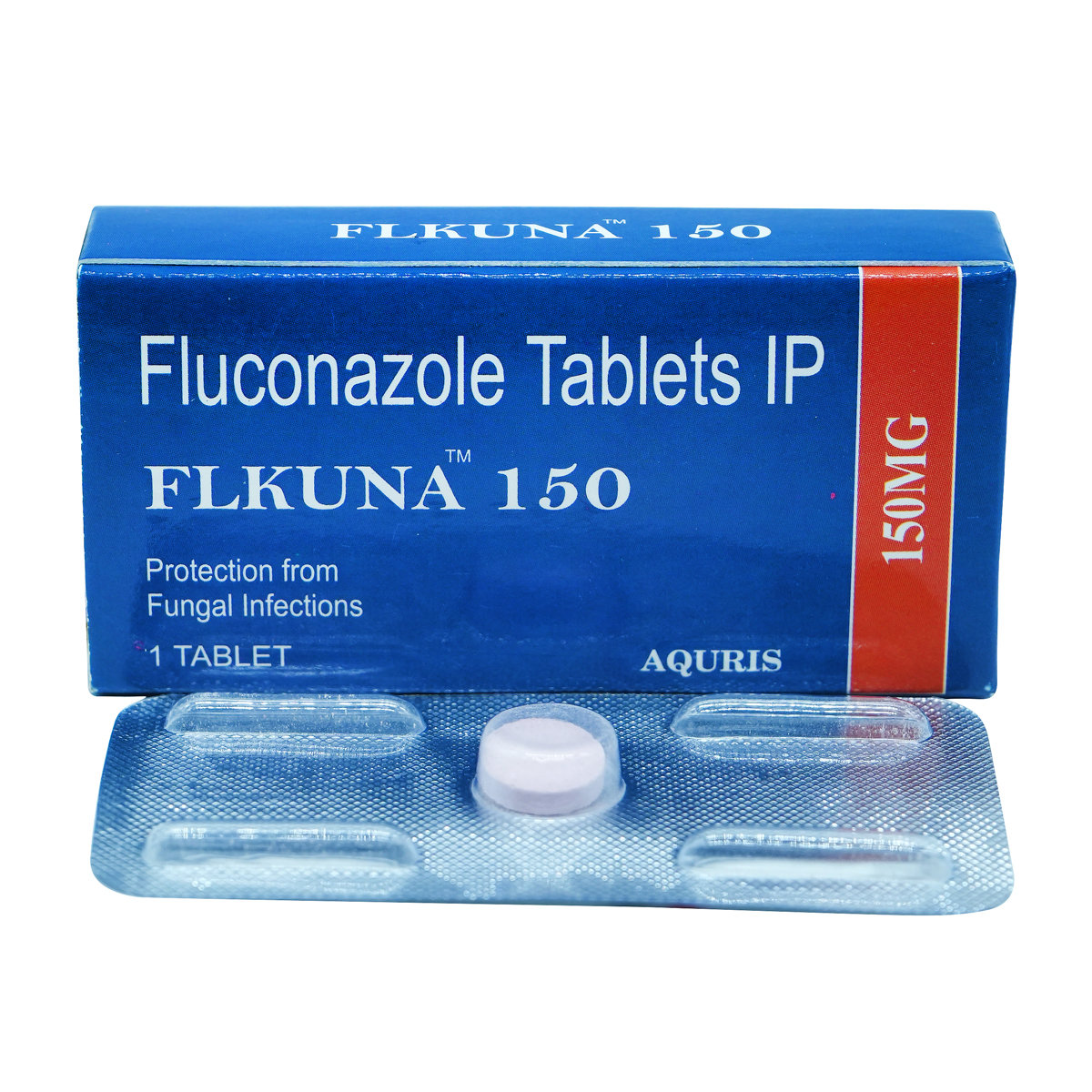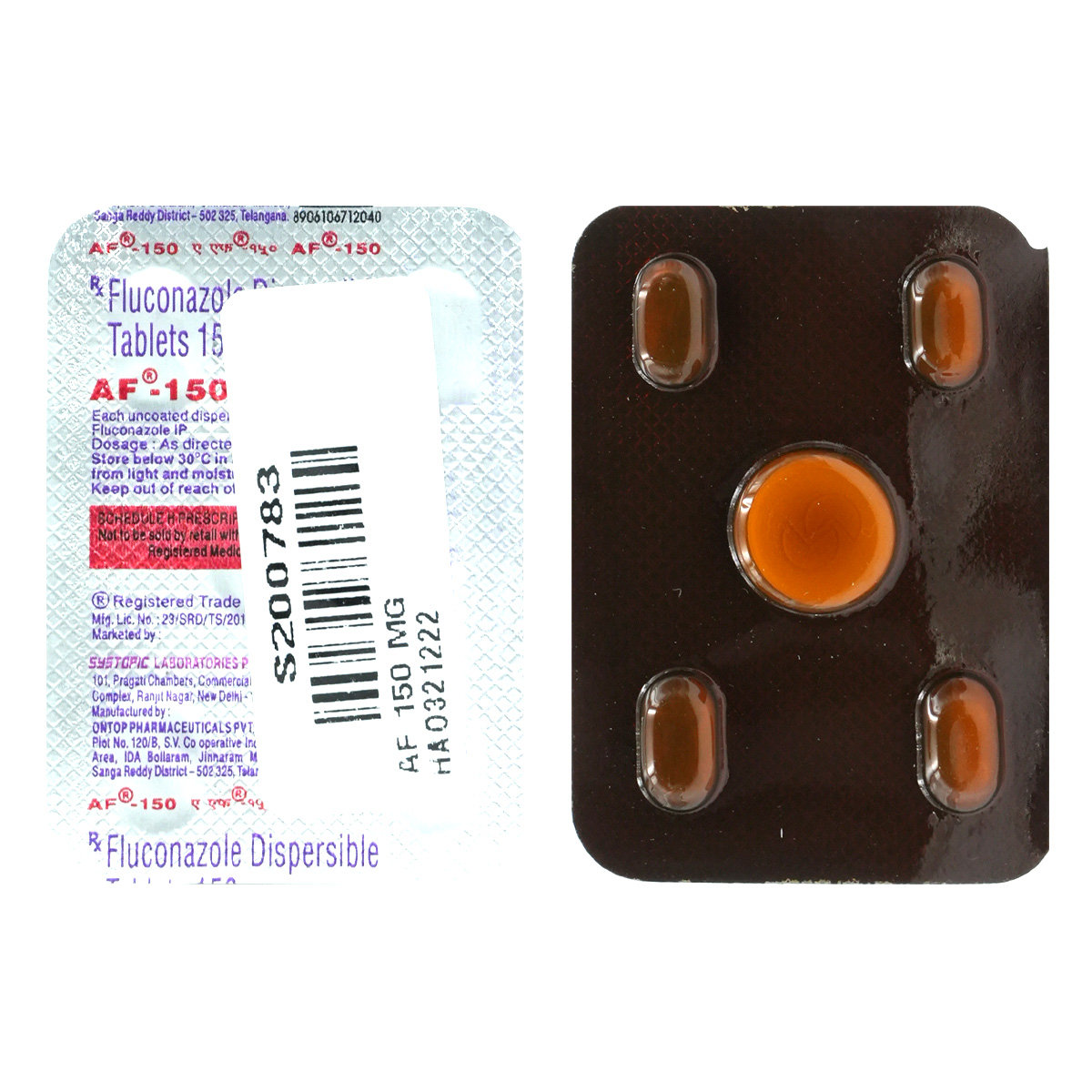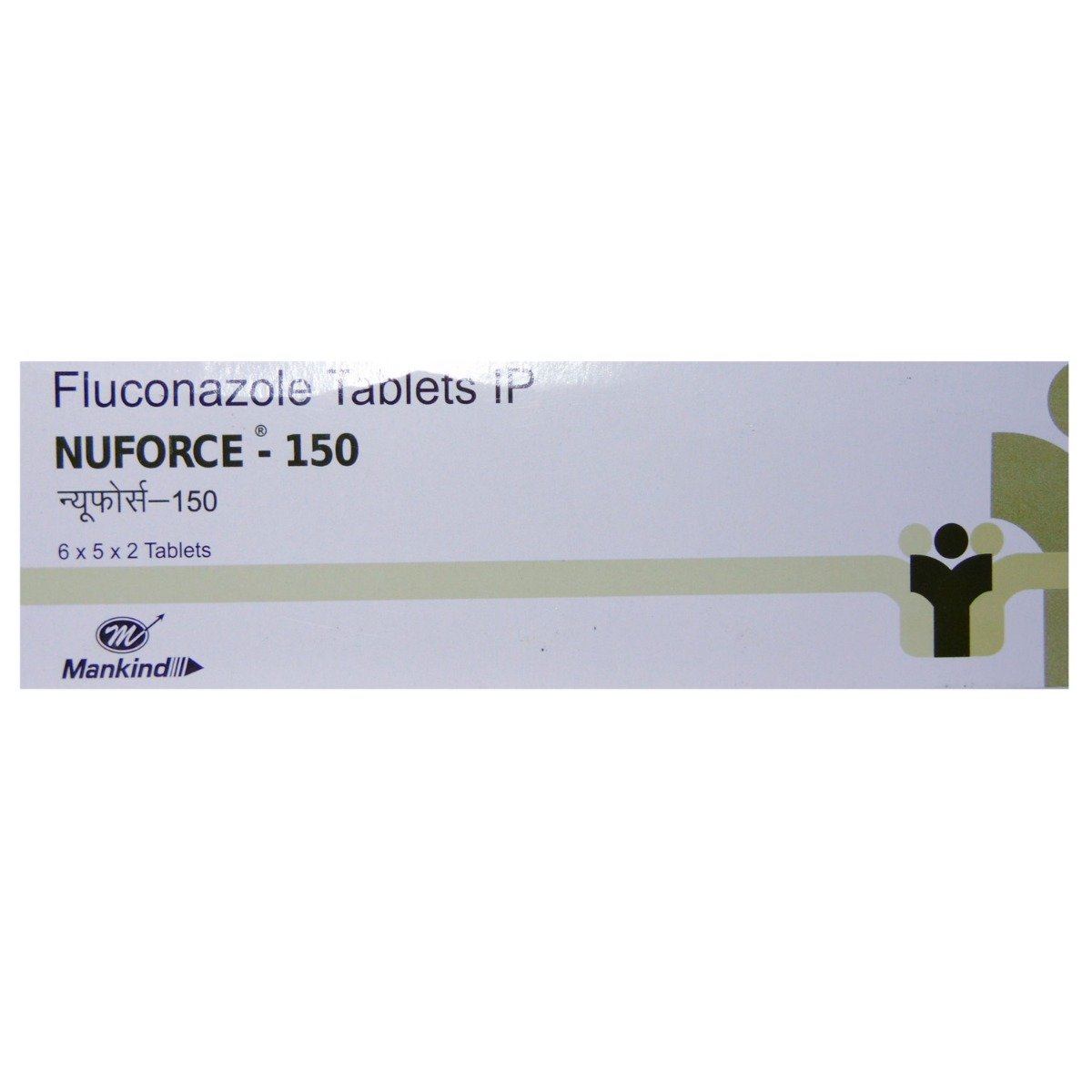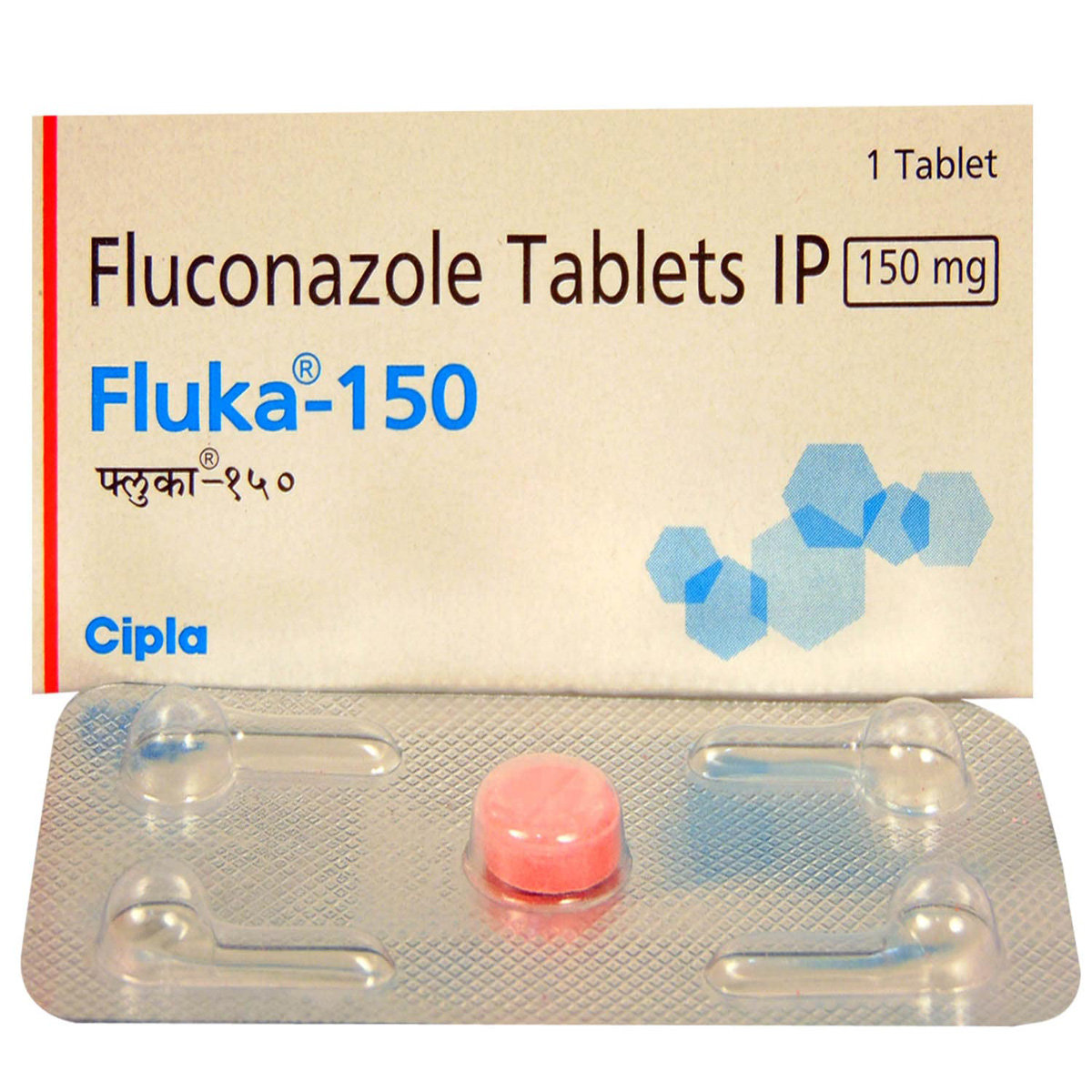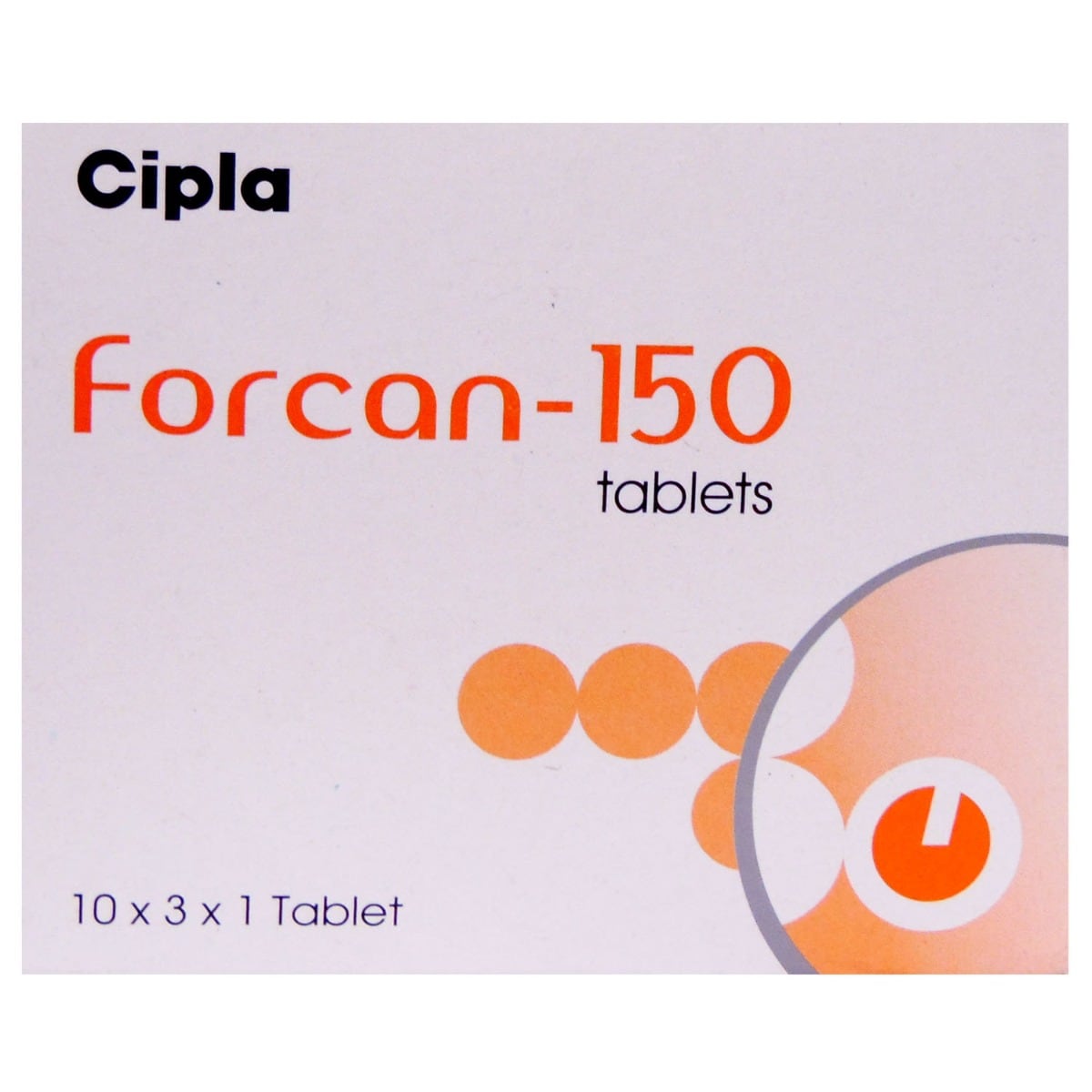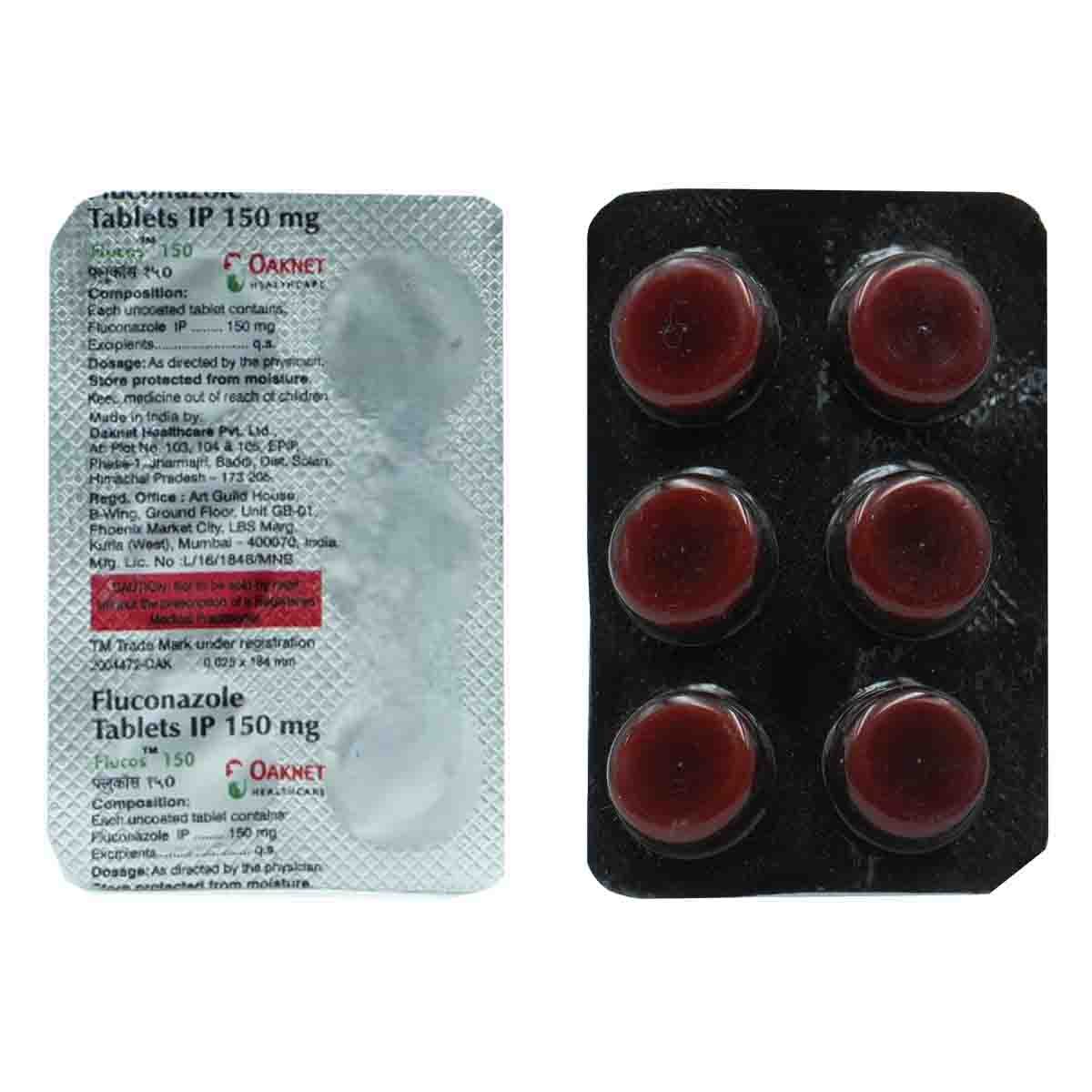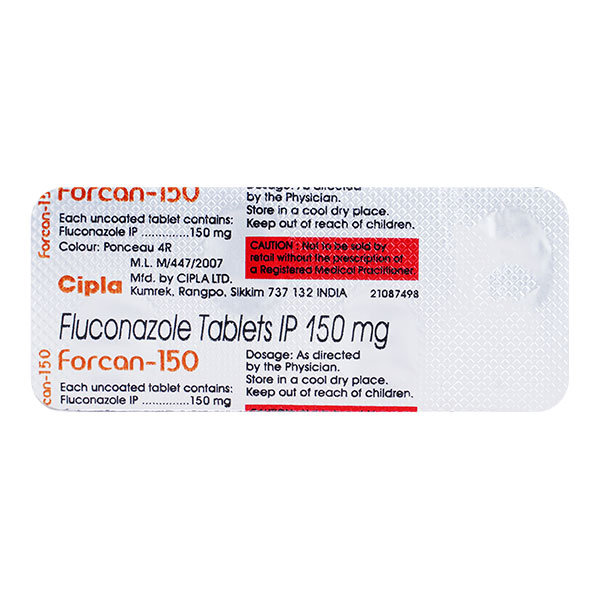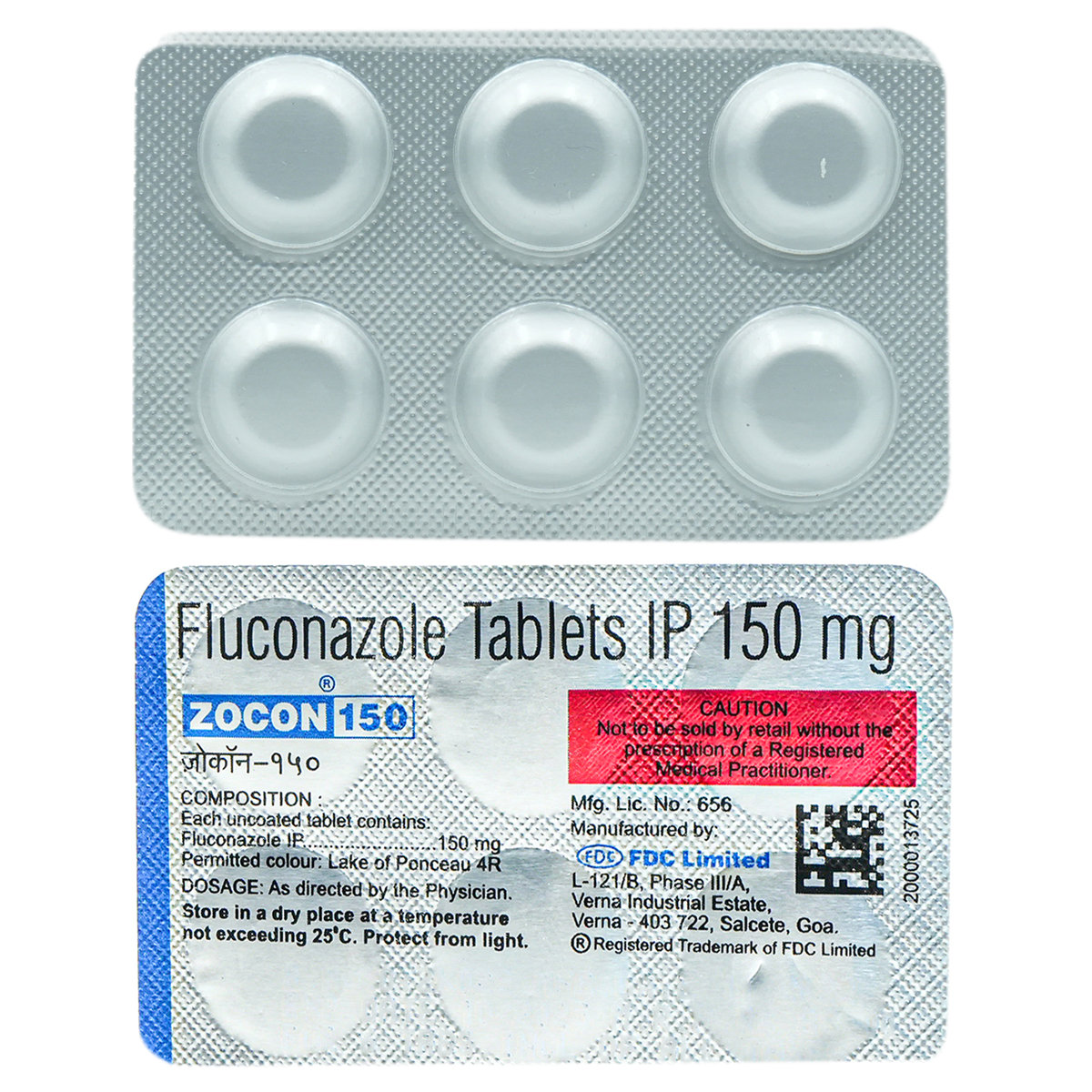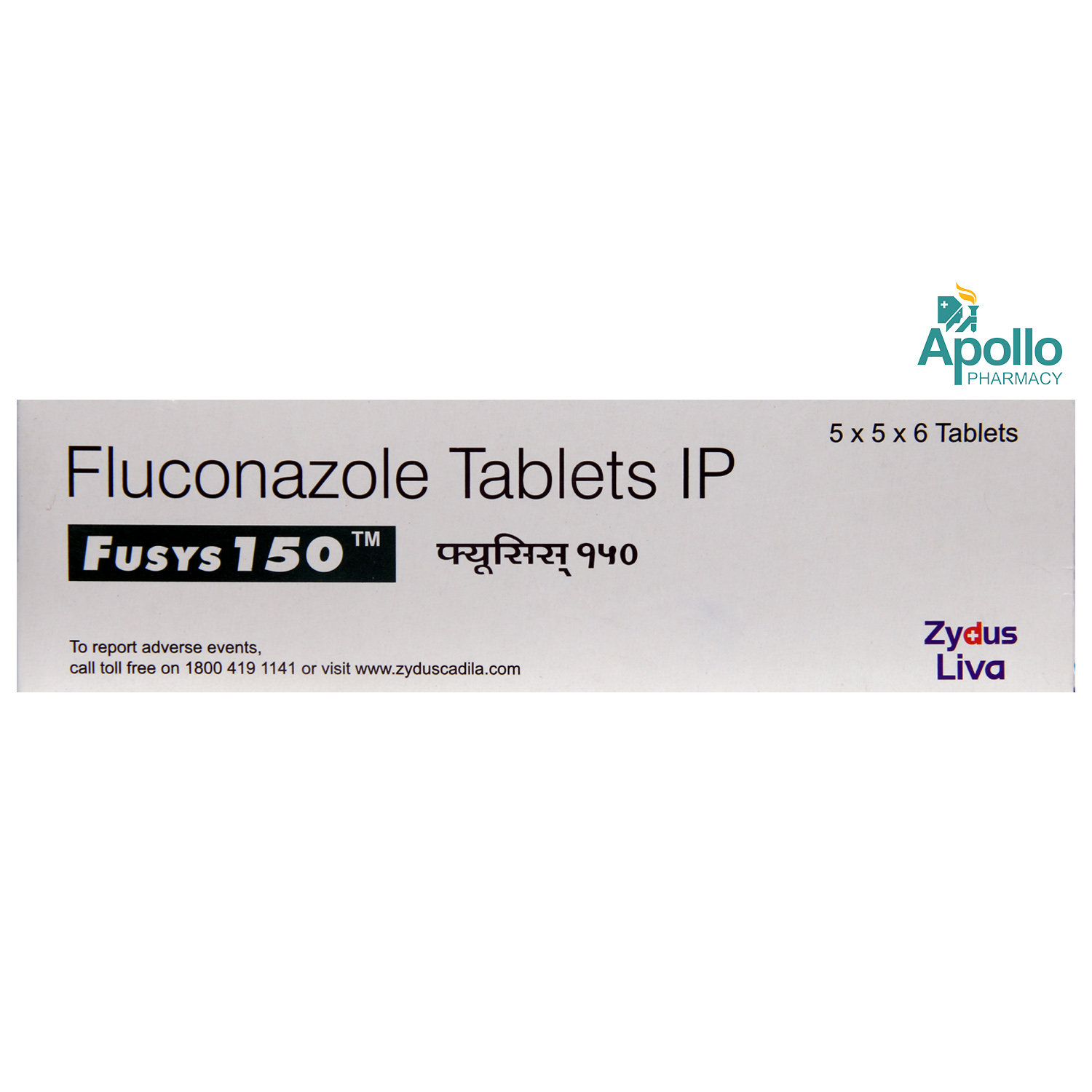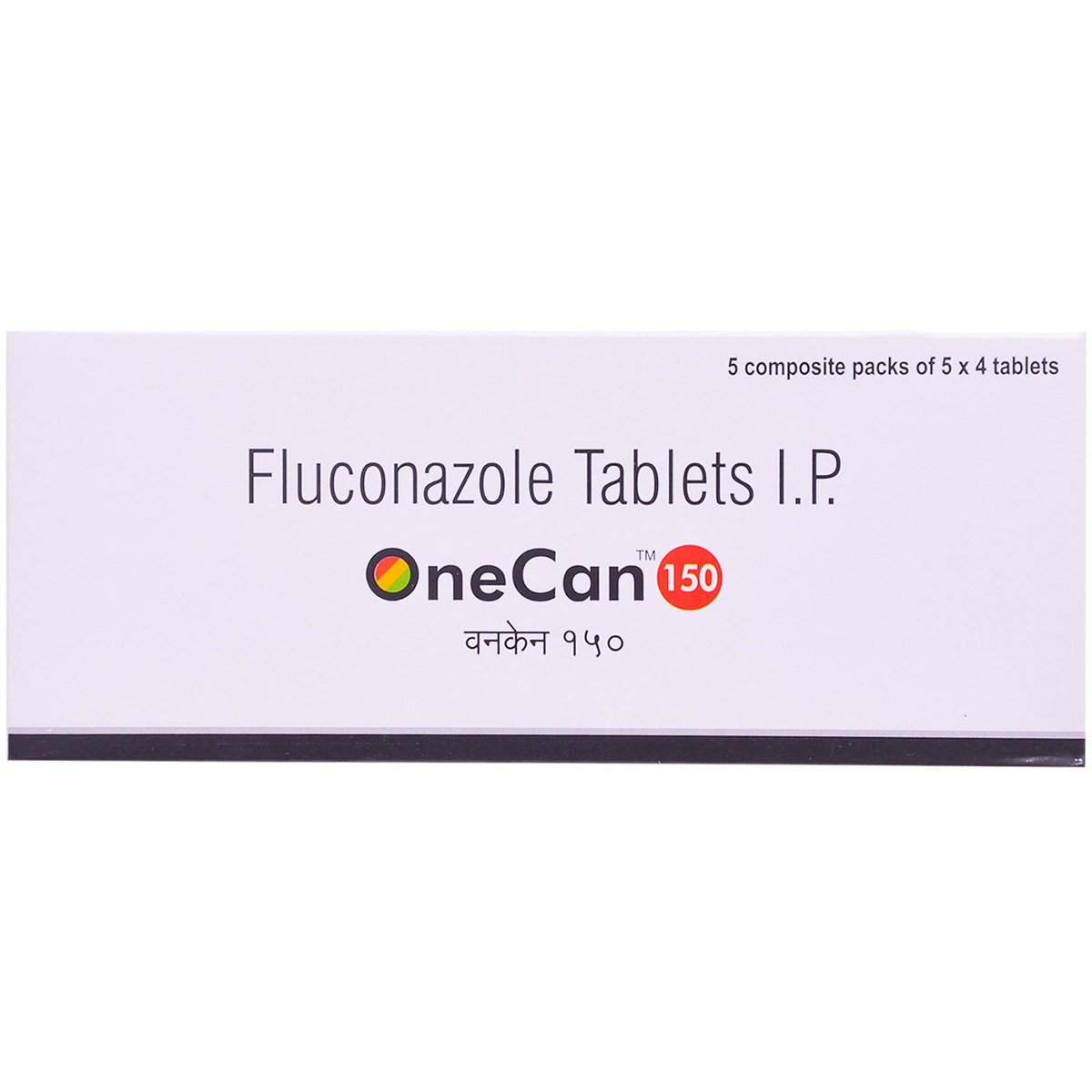Faze-150 Tablet 1's
MRP ₹12.5
(Inclusive of all Taxes)
₹1.9 Cashback (15%)
Provide Delivery Location
Online payment accepted
 Prescription drug
Prescription drugWhats That
Composition :
Manufacturer/Marketer :
Consume Type :
Expires on or after :
Return Policy :
About Faze-150 Tablet
Faze-150 Tablet belongs to the class of medicines called 'antifungals' used to treat a broad range of infections caused due to fungi and yeast. A fungal infection is caused when a fungus invades and affects any part of the body, including the mouth, throat, oesophagus, lungs, bladder, genital area, and blood.
Faze-150 Tablet contains ‘Fluconazole’ that kills or prevents fungi or yeast by inhibiting an enzyme in fungi responsible for its normal fat metabolism, which interferes with the formation of the fungal cell membrane. As a result, fungal or yeast cells get killed or their growth is minimized.
Take this medicine as prescribed by your doctor. Faze-150 Tablet has common side effects like headache, diarrhoea, nausea, stomach upset, dizziness, stomach pain, and altered food tastes. These side effects are not familiar to everyone and vary individually. If you notice any side effects that are not manageable, please consult your doctor.
Inform your doctor if you are allergic to Faze-150 Tablet or any of its components. Let your doctor know if you have any liver, kidney or heart problems before starting Faze-150 Tablet. Pregnant and breastfeeding women should consult their doctor before starting Faze-150 Tablet. It is advised to avoid alcohol intake while using Faze-150 Tablet to prevent any undesirable effects.
Uses of Faze-150 Tablet
Directions for Use
Key Benefits
Faze-150 Tablet works by killing the fungus/yeast and preventing its growth by inhibiting the fungal cell membrane formation. It is used to treat various fungal or yeast infections, such as vaginal candidiasis, oropharyngeal candidiasis (thrush, oral thrush), esophageal candidiasis (candida esophagitis), candida infections (urinary tract infections, peritonitis), and cryptococcal meningitis. Besides this, Faze-150 Tablet is also used to prevent candidiasis and coccidioidomycosis in patients who receive cancer or radiation treatment while undergoing bone marrow transplantation. Faze-150 Tablet is effective in treating soft tissue and pulmonary infections when compared to other azole antifungal drugs.
Storage
- Preventing Vomiting (Before it Happens)
- Take medication exactly as prescribed by your doctor. This can help minimize side effects, including vomiting.
- Having a small meal before taking your medication can help reduce nausea and vomiting.
- Talk to your doctor about taking anti-nausea medication along with your prescribed medication.
- Managing Vomiting (If it Happens)
- Try taking ginger in the form of tea, ale, or candy to help alleviate nausea and vomiting.
- What to Do if Vomiting Persists
- Consult your doctor if vomiting continues or worsens, consult the doctor for guidance on adjusting your medication or additional treatment.
- Drink water or other clear fluids.
- To prevent worsening of pain, limit intake of tea, coffee, or alcohol.
- Include bland foods like rice, toast, crackers, and rice in your diet.
- Avoid lying down immediately after eating as it may cause indigestion or heartburn.
- Avoid acidic and spicy food as it may cause indigestion.
- Inform your doctor about the nausea and discuss possible alternatives to the medication or adjustments to the dosage.
- Divide your daily food intake into smaller, more frequent meals to reduce nausea.
- Opt for bland, easily digestible foods like crackers, toast, plain rice, bananas, and applesauce.
- Avoid certain foods that can trigger nausea, such as fatty, greasy, spicy, and smelly foods.
- Drink plenty of fluids, such as water, clear broth, or electrolyte-rich beverages like coconut water or sports drinks.
- Use ginger (tea, ale, or candies) to help relieve nausea.
- Get adequate rest and also avoid strenuous activities that can worsen nausea.
- Talk to your doctor about taking anti-nausea medication if your nausea is severe.
- Record when your nausea occurs, what triggers it, and what provides relief to help you identify patterns and manage your symptoms more effectively.
- Inform Your Doctor: Notify your doctor immediately about your diarrhoea symptoms. This allows them to adjust your medication or provide guidance on managing side effects.
- Stay Hydrated: Drink plenty of fluids to replace lost water and electrolytes. Choose water, clear broth, and electrolyte-rich drinks. Avoid carbonated or caffeinated beverages to effectively rehydrate your body.
- Follow a Bland Diet: Eat easy-to-digest foods to help firm up your stool and settle your stomach. Try incorporating bananas, rice, applesauce, toast, plain crackers, and boiled vegetables into your diet.
- Avoid Trigger Foods: Steer clear of foods that can worsen diarrhoea, such as spicy, fatty, or greasy foods, high-fibre foods, and dairy products (especially if you're lactose intolerant).
- Practice Good Hygiene: Maintain good hygiene to prevent the spread of infection. To stay healthy, wash your hands frequently, clean and disinfect surfaces regularly, and avoid exchanging personal belongings with others.
- Take Anti-Diarrheal Medications: If your doctor advises, anti-diarrheal medications such as loperamide might help manage diarrhoea symptoms. Always follow your doctor's directions.
- Keep track of your diarrhoea symptoms. If they don't get better or worse or are accompanied by severe stomach pain, blood, or dehydration signs (like extreme thirst or dark urine), seek medical help.
- Take medications with food (if recommended): It can help prevent stomach distress and indigestion.
- Eat smaller, more frequent meals: Divide daily food intake into smaller, more frequent meals to ease digestion.
- Avoid trigger foods: Identify and avoid foods that trigger indigestion, such as spicy, fatty, or acidic foods.
- Stay upright after eating: Sit or stand upright for at least 1-2 hours after eating to prevent stomach acid from flowing into the oesophagus.
- Avoid carbonated drinks: Avoid drinking carbonated beverages, such as soda or beer, which can worsen indigestion.
- Manage stress: To alleviate indigestion, engage in stress-reducing activities like deep breathing exercises or meditation.
- Consult a doctor if needed: If indigestion worsens or persists, consult a healthcare professional to adjust the medication regimen or explore alternative treatments.
Drug Warnings
Please inform your doctor if you use any prescription, or non-prescription medicines, including vitamin and herbal supplements before using Faze-150 Tablet. Do not use Faze-150 Tablet if you are allergic to Faze-150 Tablet or any of its components. Let your doctor know if you have any liver, kidney, or heart problems before starting Faze-150 Tablet. This medicine may not be suitable for some people who have a weakened immune system, diabetes, cancer, or low blood magnesium or potassium levels; however, please seek medical advice. Pregnant or lactating women should consult the doctor before taking the Faze-150 Tablet. Do not drive or operate machinery if you experience dizziness or other side effects that may affect your mental ability to drive. Avoid alcohol consumption along with Faze-150 Tablet to avoid undesirable effects
Drug-Drug Interactions
Drug-Drug Interactions
Login/Sign Up
When Eliglustat and Faze-150 Tablet are taken together, Faze-150 Tablet can significantly increase the blood levels of eliglustat.
How to manage the interaction:
Taking Faze-150 Tablet with Eliglustat together can possibly result in an interaction, but it can be taken if a doctor has advised it. However, consult a doctor immediately if you experience any symptoms such as dizziness, lightheadedness, fainting, shortness of breath, slow heart rate, weak pulse, or heart palpitations. Do not discontinue any medications without consulting a doctor.
When Lomitapide is taken with Faze-150 Tablet, may increase the blood levels of lomitapide.
How to manage the interaction:
Taking Faze-150 Tablet with Lomitapide together can possibly result in an interaction, but it can be taken if a doctor has advised it. However, consult a doctor immediately if you experience any symptoms such as fever, chills, joint pain or swelling, unusual bleeding or bruising, skin rash, itching, loss of appetite, fatigue, nausea, vomiting, dark-colored urine, light-colored stools, and yellowing of the skin or eyes. Do not discontinue any medications without consulting a doctor.
Taking Faze-150 Tablet with Erythromycin can increase the risk of heart rhythm problems.
How to manage the interaction:
Taking Faze-150 Tablet with Erythromycin together can possibly result in an interaction, but it can be taken if a doctor has advised it. However, consult a doctor immediately if you experience dizziness, lightheadedness, fainting, shortness of breath, or heart palpitations. Do not discontinue any medications without consulting a doctor.
When Astemizole is taken with Faze-150 Tablet, the body's ability to break down Astemizole may be reduced.
How to manage the interaction:
Taking Faze-150 Tablet with Astemizole can lead to an interaction, please consult a doctor before taking it. Do not discontinue the medications without of consulting a doctor.
Co-administration of fentanyl and Faze-150 Tablet may significantly increase the blood levels and effects of fentanyl.
How to manage the interaction:
Although taking Fentanyl together with Faze-150 Tablet can result in an interaction, they can be taken together if prescribed by a doctor. However, consult a doctor if you have dizziness, fainting, confusion, excessive sleepiness, and/or shortness of breath. Do not stop taking any medication without consulting a doctor.
Taking Faze-150 Tablet with Dicumarol may increase the risk of bleeding.
How to manage the interaction:
Although there is a possible interaction, Faze-150 Tablet can be taken with Dicumarol if prescribed by the doctor. Consult the doctor if you experience unusual bleeding or bruising, vomiting, blood in your urine or stools, headache, dizziness, or weakness. Do not discontinue the medications without a doctor's advice.
Co-administration of Hydrocodone with Faze-150 Tablet may increase the blood levels of hydrocodone, which might increase side effects.
How to manage the interaction:
Although there is a possible interaction, Faze-150 Tablet can be taken with Hydrocodone if prescribed by the doctor. Consult the doctor if you experience dizziness, fainting, confusion, excessive drowsiness, slow heart rate, and/or shallow or difficult breathing. Do not discontinue the medications without a doctor's advice.
Co-administration of Simeprevir with Faze-150 Tablet may significantly increase the blood levels of Simeprevir.
How to manage the interaction:
Although there is a possible interaction between Faze-150 Tablet and Simeprevir, you can take these medicines together if prescribed by a doctor. If you're having a skin rash or sensitivity to light, it's important to let a doctor know right away. Do not discontinue any medications without consulting a doctor.
When Acalabrutinib is taken with Faze-150 Tablet, can significantly increase the blood levels of Acalabrutinib.
How to manage the interaction:
Co-administration of Faze-150 Tablet with Acalabrutinib can possibly result in an interaction, but it can be taken if a doctor has advised it. If you have any of these symptoms - feeling sick, throwing up, having diarrhea, stomach pain, bleeding, heart problems, feeling weak, dizzy, or tired, having a fever, sore throat, muscle pain, trouble breathing, losing weight, or experiencing pain, bleeding, or bruising, make sure to call a doctor right away. Do not discontinue any medications without consulting a doctor.
Co-administration of Amiodarone together with Faze-150 Tablet may raise the effects of Amiodarone which increases the risk of an irregular heart rhythm.
How to manage the interaction:
Even though Amiodarone and Faze-150 Tablet interact, they can be used if prescribed by a doctor. If you experience abrupt dizziness, lightheadedness, fainting, shortness of breath, or rapid heartbeat, get medical attention. Do not discontinue any medications without consulting a doctor.
Drug-Food Interactions
Drug-Food Interactions
Login/Sign Up
Diet & Lifestyle Advise
- Avoid frequent douching to maintain the natural moisture in the vagina.
- Use mild soap while taking baths and prefer warm baths.
- Avoid harsh products on your skin.
- Manage stress, eat healthily, drink plenty of water, exercise regularly, and get plenty of sleep.
- Avoid or limit the intake of alcohol and caffeine.
- It is advisable to follow a candida diet during yeast infections. This diet excludes sugar, gluten, certain dairy products, and alcohol, and includes low-sugar fruits, non-starchy vegetables, and gluten-free foods.
- A very-high sugar or high-carbohydrate diet may increase the count of Candida in some people.
Side Effects of Faze-150 Tablet
- Headache
- Diarrhoea
- Nausea
- Stomach upset
- Dizziness
- Stomach pain
- Altered food tastes
Habit Forming
Therapeutic Class
All Substitutes & Brand Comparisons
RX
Flkuna 150 Tablet 1's
Auspharma Pvt Ltd
₹11.5
(₹10.4 per unit)
7% CHEAPERRX
AF-150 Tablet 1's
Systopic Laboratories Pvt Ltd
₹12
(₹10.8 per unit)
4% CHEAPERRX
Nuforce 150 mg Tablet 2's
Mankind Pharma Pvt Ltd
₹25
(₹11.25 per unit)
Author Details
We provide you with authentic, trustworthy and relevant information
Drug-Diseases Interactions
Drug-Diseases Interactions
Login/Sign Up
Hepatotoxicity has only sometimes been linked to the usage of Faze-150 Tablet. There have been cases of reversible idiosyncratic hepatitis, cholestasis, and deadly fulminant hepatic failure; the latter generally affects people with substantial underlying medical disorders who are also taking several concurrent drugs. Patients with pre-existing hepatic problems should have periodic liver function tests done, especially during prolonged medication. If liver enzyme levels continue to rise or worsen, treatment should be stopped.
How to manage the interaction:
In patients with preexisting liver abnormalities, particularly during prolonged therapy, liver function tests should be done regularly. Treatment should be withdrawn if persistent elevations or worsening of liver enzyme levels occur.
The QT interval on the ECG has been shown to be prolonged by some azole antifungals. During postmarketing experience, there have been a few isolated incidences of QT prolongation and torsade de pointes; these reports typically involved critically ill patients with a number of complicating risk factors, including structural cardiac disease, electrolyte problems, and concurrent medicines. Patients with illnesses that could cause proarrhythmic symptoms should take these medications cautiously. It is best to avoid using drugs that could potentially enhance the risk of cardiotoxicity concurrently.
How to manage the interaction:
It should be administered with caution to patients with heart problems. Concomitant use with other medications that have potential to increase the risk of cardiotoxicity should be avoided.
Hemodialysis effectively removes Faze-150 Tablet from the body. Following three hours of dialysis, it has been demonstrated that plasma levels of Faze-150 Tablet decrease by 50%. After hemodialysis, Faze-150 Tablet should be taken.
How to manage the interaction:
Faze-150 Tablet should be administered after hemodialysis.
FAQs
Faze-150 Tablet contains Fluconazole, an antifungal drug, which works by killing the fungus/yeast and preventing its growth by inhibiting the fungal cell membrane formation. Thus, it treats fungal infections.
Do not stop using Faze-150 Tablet even if you feel better until the doctor's advised course is finished. Your symptoms may improve before the infection is completely cured.
The usual recommendation of dosage for Faze-150 Tablet can be for a short time. However, your doctor may prescribe it for a longer time, depending on the type and severity of your infection.
Faze-150 Tablet may not be suitable for some people who have a weakened immune system, diabetes, cancer, or low blood magnesium or potassium levels. However, it is advised to seek a doctor's advice before starting Faze-150 Tablet if you have a previous medical history.
Drug-Drug Interactions Checker List
- PIMOZIDE
- QUETIAPINE
- ERYTHROMYCIN
- ERGOTAMINE
- AMIODARONE
- WARFARIN
- CARBAMAZEPINE
- LOSARTAN
- METFORMIN
- REBOXETINE
Special Advise
It is advised to reach out to your doctor if the infection symptoms persist or worsen after two weeks of treatment.
Disease/Condition Glossary
Fungal infection occurs when a fungus enters, infects, and multiplies in the body. Fungi can live in water, soil, air, and plants. Fungi affect any part of the body, including the mouth, throat, oesophagus, lungs, bladder, genital area, and blood. Mild fungal skin infections are common and can cause rashes. Fungal infections affecting body organs like the lungs can cause flu or tuberculosis. Some fungal diseases like cryptococcal meningitis and blood infections can be fatal. A few common fungal infections are yeast infections that affect the genital area, oesophagus, and urinary tract caused by the species Candida.

Have a query?
Alcohol
Safe if prescribed
It is advisable to avoid or limit the intake of alcohol while you use Faze-150 Tablet.
Pregnancy
Consult your doctor
Please consult your doctor if you are pregnant or are planning to conceive before starting Faze-150 Tablet.
Breast Feeding
Consult your doctor
Faze-150 Tablet should be used with caution and only under a doctor's advice if you are a lactating mother. Please seek medical advice for more information.
Driving
Safe if prescribed
Faze-150 Tablet may sometimes cause dizziness or other side effects that may affect your mental ability to drive. Hence do not drive or operate machinery if you are not mentally alert.
Liver
Consult your doctor
Let your doctor know if you have any history of liver diseases when you are prescribed Faze-150 Tablet.
Kidney
Consult your doctor
Let your doctor know if you have any history of kidney diseases when you are prescribed Faze-150 Tablet.
Children
Safe if prescribed
Faze-150 Tablet may be prescribed to children by the doctor, depending on the infection. The doctor decides the right dose for a child based on his/her age and weight.




